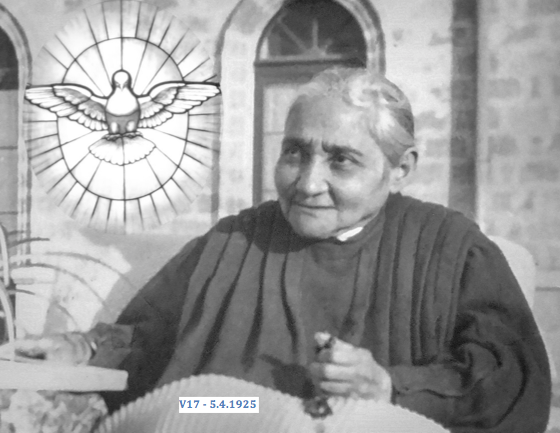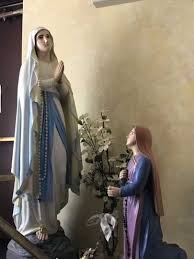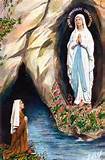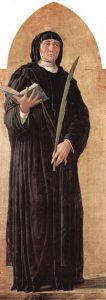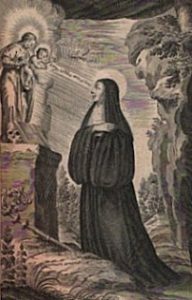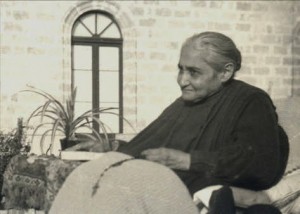OUR LADY OF LOURDES – On December 8, 1854, Pope Pius IX proclaimed the dogma of the Immaculate Conception in the apostolic constitution Ineffabilis Deus. A little more than three years later, on February 11, 1858, a young lady appeared to Bernadette Soubirous. This began a series of visions. During the apparition on March 25, the lady identified herself with the words: “I am the Immaculate Conception.”
2/11 Feast Day of Our Lady of Lourdes
The pilgrimage of Lourdes is founded on the apparitions of the Blessed Virgin to a poor, fourteen-year-old girl, Bernadette Soubiroux. The first apparition occurred 11 February, 1858. There were eighteen in all; the last took place 16 July, of the same year. Bernadette often fell into an ecstasy. The mysterious vision she saw in the hollow of the rock Massabielle was that of a young and beautiful lady. “Lovelier than I have ever seen” said the child. But the girl was the only one who saw the vision, although sometimes many stood there with her. Now and then the apparition spoke to the seer who also was the only one who heard the voice. Thus, she one day told her to drink of a mysterious fountain, in the grotto itself, the existence of which was unknown, and of which there was no sign, but which immediately gushed forth. On another occasion the apparition bade Bernadette go and tell the priests she wished a chapel to be built on the spot and processions to be made to the grotto. At first the clergy were incredulous. It was only four years later, in 1862, that the bishop of the diocese declared the faithful “justified in believing the reality of the apparition”. A basilica was built upon the rock of Massabielle by M. Peyramale, the parish priest. In 1873 the great “national” French pilgrimages were inaugurated. Three years later the basilica was consecrated and the statue solemnly crowned. In 1883 the foundation stone of another church was laid, as the first was no longer large enough. It was built at the foot of the basilica and was consecrated in 1901 and called the Church of the Rosary. Pope Leo XIII authorized a special office and a Mass, in commemoration of the apparition, and in 1907 Pius X extended the observance of this feast to the entire Church; it is now observed on 11 February.
Never has a sanctuary attracted such throngs. At the end of the year 1908, when the fiftieth anniversary of the apparition was celebrated, although the record really only began from 1867, 5297 pilgrimages had been registered and these had brought 4,919,000 pilgrims. Individual pilgrims are more numerous by far than those who come in groups. To their number must be added the visitors who do not come as pilgrims, but who are attracted by a religious feeling or sometimes merely by the desire to see this far-famed spot. The Company of the Chemins de Fer du Midi estimates that the Lourdes station receives over one million travellers per annum. Every nation in the world furnishes its contingent. Out of the total of pilgrimages given above, four hundred and sixty-four came from countries other than France. They are sent by the United States, Germany, Belgium, Austria, Hungary, Spain, Portugal, Italy, England, Ireland, Canada, Brazil, Bolivia, etc. The bishops lead the way. At the end of the year of the fiftieth anniversary, 2013 prelates, including 546 archbishops, 10 primates, 19 patriarchs, 69 cardinals, had made the pilgrimage to Lourdes. But more remarkable still than the crowd of pilgrims is the series of wonderful occurrences which take place under the protection of the celebrated sanctuary. Passing over spiritual cures, which more often than not escape human observance, we shall confine ourselves to bodily diseases. The writer of this article has recorded every recovery, whether partial or complete, and in the first half-century of the shrine’s existence he has counted 3962. Notwithstanding very careful statistics which give the names and surnames of the patients who have recovered, the date of the cure, the name of the disease, and generally that of the physician who had charge of the case, there are inevitably doubtful or mistaken cases, attributable, as a rule, to the excited fancy of the afflicted one and which time soon dispels. But it is only right to note: first, that these unavoidable errors regard only secondary cases which have not like the others been the object of special study; it must also be noted that the number of cases is equalled and exceeded by actual cures which are not put on record. The afflicted who have recovered are not obliged to present themselves and half of them do not present themselves, at the Bureau des Constatations Médicales at Lourdes, and it is from this bureau’s official reports that the list of cures is drawn up.
The estimate that about 4000 cures have been obtained at Lourdes within the first fifty years of the pilgrimage is undoubtedly considerably less than the actual number. The Bureau des Constatations stands near the shrine, and there are recorded and checked the certificates of maladies and also the certificates of cure; it is free to all physicians, whatever their nationality or religious belief. Consequently, on an average, from two to three hundred physicians annual visit this marvellous clinic. As to the nature of the diseases which are cured, nervous disorders so frequently mentioned, do not furnish even the fourteenth part of the whole; 278 have been counted, out of a total of 3962. The present writer has published the number of cases of each disease or infirmity, among them tuberculosis, tumours, sores, cancers, deafness, blindness, etc. The “Annales des Sciences Physiques”, a sceptical review whose chief editor is Doctor Ch. Richet, Professor at the Medical Faculty of Paris, said in the course of a long article, apropos of this faithful study: “On reading it, unprejudiced minds cannot but be convinced that the facts stated are authentic.”
(From Catholic Encyclopedia)
2/10 Saint Scholastica, Virgin (Twin Sister of St. Benedict)
SAINT SCHOLASTICA
Virgin
St. Scholastica was the twin sister of St. Benedict, the Patriarch of Western monasticism. She was born in Umbria, Italy, about 480. Under Benedict’s direction, Scholastica founded a community of nuns near the great Benedictine monastery Monte Cassino. We are told that Scholastica “could be sated or wearied with the words of grace which flowed from St. Benedict’s lips.” Inspired by Benedict’s teaching, his sister devoted her whole life to seeking and serving God. St. Scholastica died in the peace of Christ in the year 547. Tradition holds that at her death her soul ascended to heaven in the form of a dove.
Introit
Ps 44:8
You love justice and hate wickedness; therefore God, your God, has anointed you with the oil of gladness above your fellows.
Ps 44:2
My heart overflows with a goodly theme; as I sing my ode to the King.
V. Glory be to the Father, and to the Son, and to the Holy Ghost.
R. As it was in the beginning, is now, and ever shall be, world without end. Amen.
You love justice and hate wickedness; therefore God, your God, has anointed you with the oil of gladness above your fellows.
Mass of a VIRGIN, except
COLLECT
O God, you brought the soul of the blessed virgin Scholastica to heaven in the form of a dove in order to bring to our notice her life of innocence. Through the prayers and merits of Your saint may we live such a life that we too may attain everlasting happiness. Through Our Lord . . .
Lesson
Lesson from the second letter of St Paul the Apostle to the Corinthians
2 Cor. 10:17-18; 11:1-2
Brethren: He who boasts, let him boast in the Lord. For he is not approved who commends himself, but he whom the Lord commends. Would to God that you could bear with a little of my foolishness! Nay, do bear with me! For I am jealous for you with a divine jealousy. For I betrothed you to one spouse, that I might present you a chaste virgin to Christ.
Gradual
Ps 44:11-12
Hear, O daughter, and see; turn your ear; for the King shall desire your beauty.
Ps 44:13; 44:10.
V. All the rich among the people seek Your favor; the daughters of kings come to meet You.
Ps 44:15-16.
V. Behind her the virgins of her train are brought to the King; they are borne in to You.
V. They are brought with gladness and joy; they enter the palace of the King.
GOSPEL
Continuation ☩ of the Holy Gospel according to Matthew
R. Glory be to Thee, O Lord.
Matt 25:1-3
At that time, Jesus spoke this parable to His disciples: Then will the kingdom of heaven be like ten virgins who took their lamps and went forth to meet the bridegroom and the bride. Five of them were foolish and five wise. But the five foolish, when they took their lamps, took no oil with them, while the wise did take oil in their vessels with the lamps. Then as the bridegroom was long in coming, they all became drowsy and slept. And at midnight a cry arose, ‘Behold, the bridegroom is coming, go forth to meet him!’ Then all those virgins arose and trimmed their lamps. And the foolish said to the wise, ‘Give us some of your oil, for our lamps are going out.’ The wise answered, saying, ‘Lest there may not be enough for us and for you, go rather to those who sell it, and buy some for yourselves.’ Now while they were gone to buy it, the bridegroom came; and those who were ready went in with him to the marriage feast, and the door was shut. Finally there came also the other virgins, who said, ‘Sir, sir, open the door for us!’ But he answered and said, ‘Amen I say to you, I do not know you.’ Watch therefore, for you know neither the day nor the hour.
SECRET
May this sacrifice of Thy dedicated people be accepted by Thee, O Lord, in honor of Thy Saints: to whose merits we attribute the help afforded us in tribulation. Through our Lord . . .
POSTCOMMUNION
Thou hast filled Thy household, O Lord, with holy gifts: do Thou cherish us always, through the intercession of her whose festival we are keeping. Through our Lord . . .
St. Scholastic (left)
Little Daughter of the Divine Will Luisa Piccarreta (right)
Volume 3; December 21, 1899
Luisa speaks about virginity and purity.
After a long silence, this morning, interrupting it, my lovable Jesus said to me: “I am the receptacle of pure souls.” And in these words of His I received intellectual light that made me comprehend many things about purity, but I can repeat little or nothing with words, of what I feel in my intellect. However, most honorable lady obedience wants me to write something, be it even nonsense, and to make her content I will speak my nonsense about purity.
It seemed to me that purity is the noblest gem that the soul can possess. The soul who possesses purity is invested with candid light, in such a way that blessed God, in looking at her, finds His own image; He feels drawn to love her, so much so, that He reaches the point of becoming enamored with her, and He is taken by so much love that He gives her His most pure Heart as dwelling, because only that which is pure and perfectly clean enters into God; nothing stained can enter that most pure bosom. The soul who possesses purity retains within herself her original splendor that God gave her in creating her; nothing is disfigured or disennobled in her; rather, like a queen who aspires to her nuptials with the celestial King, she preserves her nobility until this noble flower is transplanted into the celestial gardens. Oh! how this virginal flower is fragrant of a distinct odor! It always rises above all other flowers, and even above the very Angels. How it stands out with varied beauty! So, all are taken by esteem and love, and give it free way, to let it reach up to its Divine Spouse, in such a way that the first place around Our Lord is of these noble flowers. And Our Lord greatly delights in strolling in the midst of these lilies that perfume the earth and Heaven; and He delights even more in being surrounded by these lilies because, He being the first noble lily and the model, He is the specimen of all the others.
Oh! how beautiful it is to see a virgin soul! Her heart gives off no other breath but that of purity and of candor; it is not even shadowed by any other love which is not God; even her body gives off fragrance of purity. Everything is pure in her: pure in her steps, pure in operating, in speaking, in looking, and also in moving. So, at the mere sight of her one feels the fragrance and recognizes a soul who is truly virginal. What charisms, what graces, what mutual love and loving stratagems between this soul and her Spouse Jesus! Only one who experiences them can say something; and one cannot even narrate everything. Besides, I don’t feel entitled to speak about this, therefore I keep silent and I move on.
2/10 Benedictine Daughters and Monks of the Divine Will

Benedictine Daughters and Monks of the Divine Will
Click here for website of the Benedictine Daughters of Divine Will
2/9 The establishment of Faith is in the establishment of Charity.
Book of Heaven; Volume 4; 1/27/01
As I (Luisa) was in my usual state, my adorable Jesus made Himself seen for a little while and, I don’t know why, He said to me: “My daughter, the whole establishment of the Catholic Faith is in the establishment of Charity, which unites the hearts and makes them live in Me.” Then, throwing Himself into my arms, He wanted me to refresh Him. After I did as much as I could, He gave me tit for tat, and He disappeared.
2/8 Feast Day of St. Josephine Bakhita, Virgin and St. Jerome Emiliani
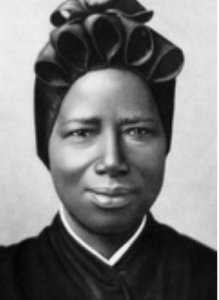
Sister Josephine Bakhita
Information about Sister Josephine Bakhita is available at Catholic Online
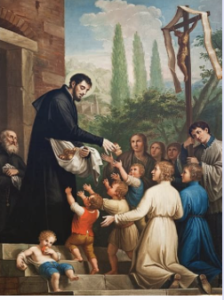
St. Jerome Emiliani
Information about St. Jerome Emiliani is available at Catholic Online
*****
Book of Heaven: Volume 12; October 12, 1920
Jesus to the Little Daughter of the Divine Will Luisa Piccarreta: “So it happens to the one who Lives in My Will. Being placed in My Conditions, and the Sun of My Volition being in her, she is the one who Must Give Light, Warming, Helping, Reassuring, Comforting. So, I Alone AM your Help – and you, from within My Will, shall Help others.”
2/7 Book of Heaven, Volume 19 – March 28, 1926
How, by living in the Divine Will, all goods are centralized within the soul.
Having received Holy Communion, I (Luisa) was calling everyone – my Queen Mama, the Saints, the first man Adam with the retinue of all generations, up to the last man who will come upon earth, and then all created things – so that, all together, prostrate with me around Jesus, we might adore Him, bless Him, love Him; so that nothing might be missing around Jesus, of all the works which came out of His hands – not a heart that palpitates, nor a sun that shines, nor the vastness of the blue heavens studded with stars, nor the sea that murmurs, and not even the tiny little flower that gives off its fragrance. I wanted to centralize everything and everyone around Jesus-Host, so that we might render Him the honors due to Him. His Will made everything present to me as if everything were mine, and I wanted to give everything to Jesus. …
